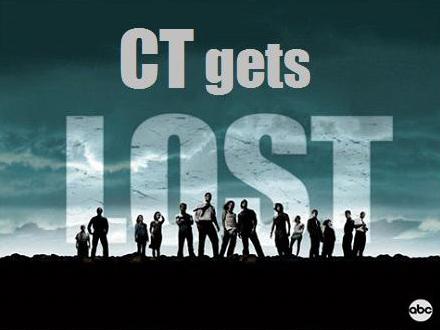 The world can find many things to love about Olympic swimmer Missy Franklin, the most inconsequential being her ability to lip sync to Call Me Maybe, the most consequential being her team-focused attitude. It’s a far cry from what we’ve seen recently from Michael Phelps.
The world can find many things to love about Olympic swimmer Missy Franklin, the most inconsequential being her ability to lip sync to Call Me Maybe, the most consequential being her team-focused attitude. It’s a far cry from what we’ve seen recently from Michael Phelps.
https://www.youtube.com/watch?v=YPIA7mpm1wU
The fresh-faced 17-year-old made her Olympic debut over the weekend, capturing a bronze medal in the women’s 4×100 meter freestyle race on Saturday. Then last night, the Colorado native won gold in the 100-meter race, what The New York Times has called “the highest quality women’s 100 backstroke field in history.” If media predict correctly, Franklin will return to the United States as a decorated athlete we’ll watch for years to come. Sounds familiar, right?
For the past three Olympic Games, I, like much of America, have eagerly watched Michael Phelps as he chased record after record. A 15-year-old when he first entered our living rooms during the 2000 Sydney Games, Phelps was ready to prove his talent to the world. Eventually he did. Again, and again, and again.
Phelps’s victorious smile disappeared last weekend after his fourth place finish in the Men’s 400 IM, which he lost to gold medal winner and American teammate Ryan Lochte. The Los Angeles Times likened the loss to Tiger Woods missing a cut at the Masters or Kobe Bryant getting benched in the playoffs.
Lochte’s win was no fluke either. Over the past four years, he’s dramatically changed his diet and training schedule in order to beat Phelps in the event. Despite being friendly outside the pool, the two have reportedly driven each other to swim longer and train harder, neither wanting to lose to the other.
In an interview immediately following the race, Phelps appeared noticeably and understandably frustrated, a normal response from anyone who has just lost a close rivalry. But more disappointing than his fourth place finish were his excuses for the loss. Refusing to make eye contact with the reporter, Phelps emphasized he didn’t feel well that morning and said, “The plan we had coming in wasn’t the best plan.” Never did he admit personal responsibility for what he could have done better. Worse, what I hoped to hear but never did was Phelps’s admission that Lochte trained hard and perhaps, dare I say, earned the win?
Phelps later congratulated his American teammate on Twitter and admitted to some of his failings in preparation for the event, but his initial interview illuminates what kind of person Phelps has become in the pool. In interviews leading up to the Games, it seemed Phelps was focused more on the individual prize more than than a mutual win for a team, a constant tension for American athletes. While swimming is certainly known for being a solo sport, the Olympics is loved in part for its ability to unite around a country’s success.
On the other hand, Franklin went into interviews leading into the Games with apparent humility, focusing less on herself and more on her team and country. In a recent conversation with Matt Lauer, she said, “In the end, you’re doing this for your entire team, and you want to go out and make them proud.” Some might roll their eyes at the cliche phrase, but the sincere attitude offered refreshing example from others who center the emphasis on themselves.
It appears American evangelicals are experiencing a similar tension to that of Olympic athletes balancing their role as both individual athlete and team member. In 2011, the Barna Group released a study that found that while Christianity dominated America (81 percent self identified as Christian), only 21 percent of those polled believed that spiritual maturity required a vital connection to a faith community.
Ross Douthat, author of the book Bad Religion: How We Became a Nation of Heretics (Free Press), argues that an emerging focus on individualism amongst believers has consequences that Christians should find troubling. Douthat, a conservative Catholic, spotlights a tension within evangelicalism between the current and historical, the contemporary and tradition. (See also his recent CT interview.)
In a New York Times op-ed last week, he argues Christianity without the institutional church looks like a “self-satisfied, self-regarding, all-too-American faith which conceives of God as part divine butler, part cosmic therapist and which jettisons the more challenging aspects of Christianity that the traditional churches and denominations, for all their many sins and follies, at least tried to hand down to us intact.”
It’s worth comparing the dichotomy to the plight of the Olympic swimmer. As Christians, we must seek after a personal relationship with Jesus Christ without neglecting the importance of a faith community providing discipleship and accountability along the journey.
I am optimistic Franklin’s refreshing outlook won’t do a disappearing act in coming years. Not yet swayed to and fro between corporate sponsors, or prideful from the weight of Olympic gold, the athlete will certainly experience the pressure to begin tooting her own horn. With a supportive network and team, here’s to hoping we’ll see her at the Rio de Janeiro Games in 2016 as the same team-focused, American sweetheart she appears to be today.
Lesley Sebek Miller, a Westmont College graduate, lives in Sacramento, California. Her work has appeared in Relevant Magazine. She blogs at http://barefooton45th.com.
Chris Seay, author of The Gospel According to Lost, is video blogging for CT about Season 6 of Lost. In one of several brief character studies, Seay notes that Kate believes she’ll never be good, that she can’t be redeemed. But he says, “My prayer is that we’ll see Kate believe that good things will come to her” during this final season. Chris’s thoughts:








